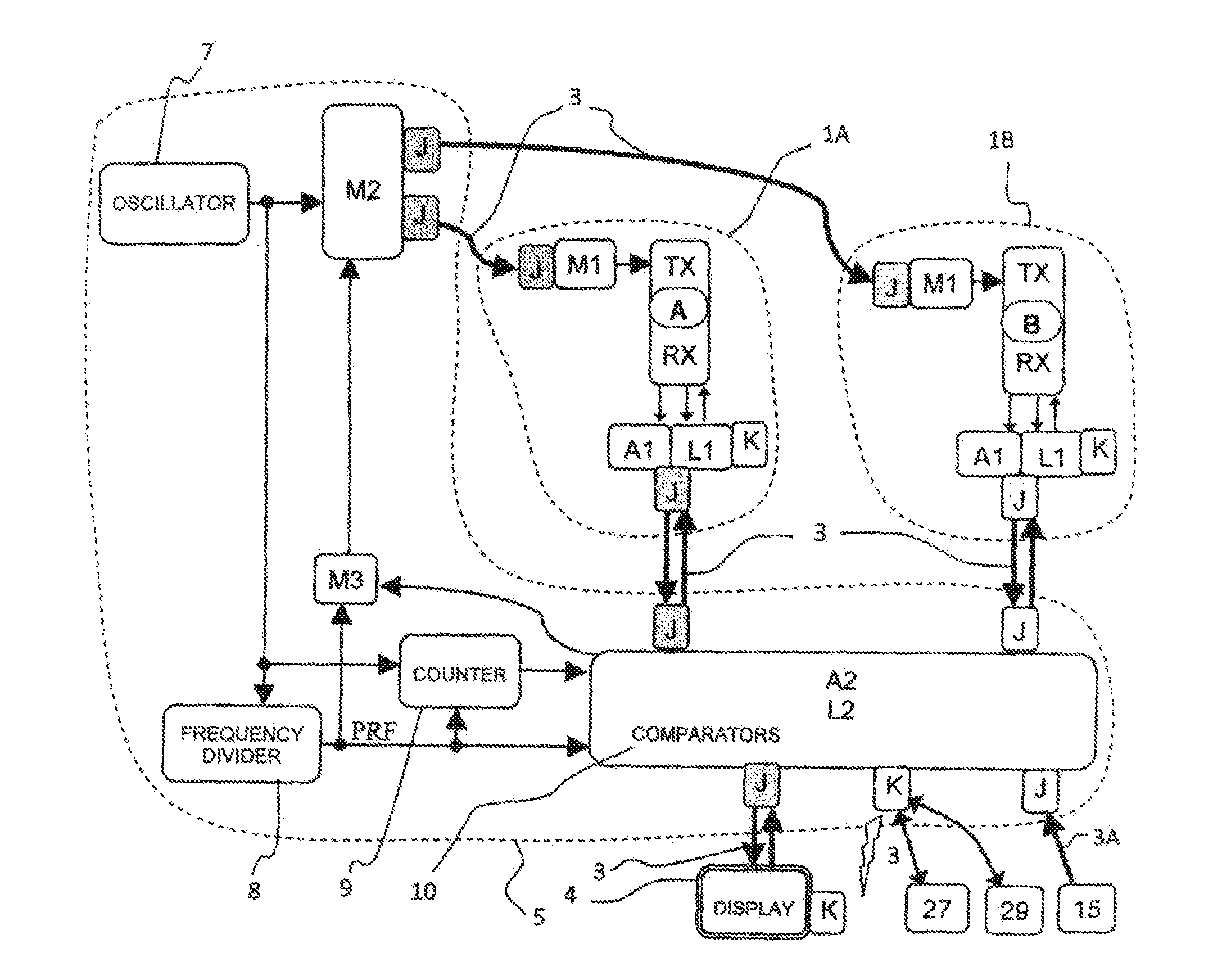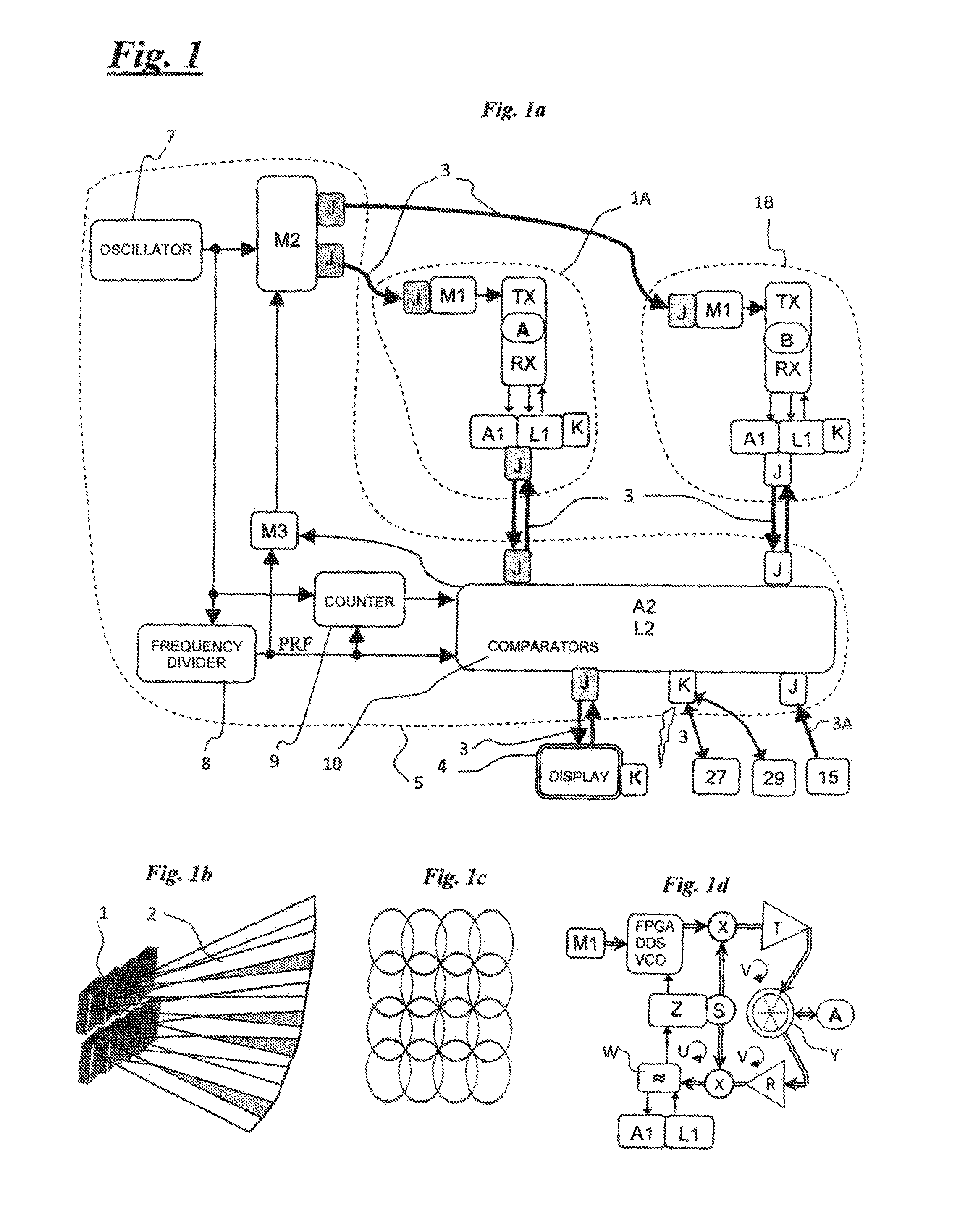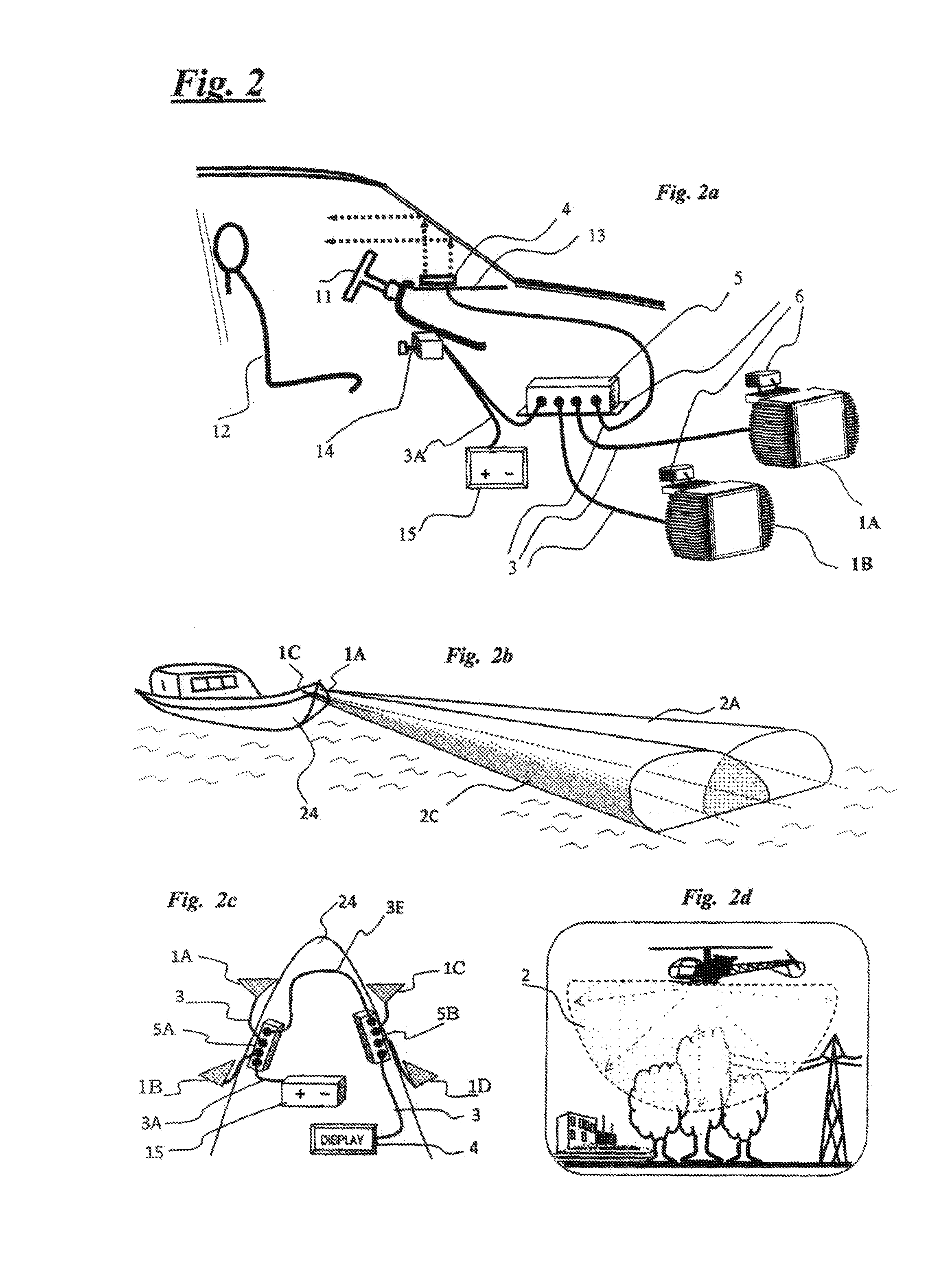Adaptive radar systems with ecological microwave cameras
a technology of adaptive radar and microwave camera, applied in the field of ecological radar devices, can solve the problems of limited number of identical radars, inability to deploy existing radars independently, and all these sensors become useless
- Summary
- Abstract
- Description
- Claims
- Application Information
AI Technical Summary
Benefits of technology
Problems solved by technology
Method used
Image
Examples
Embodiment Construction
[0016]The present invention, being able to assume any attitude, is extremely versatile, easy to use and low cost, valid to satisfy a wide variety of applications still uncovered. It falls within the substantive scope of human needs and in the technical field of electronic equipment manufacturing. As mentioned, it includes a distributed radar that integrates other elements, depending on the use and the degree of protection desired. This radar can also be represented by the following mathematical formula
u(t)=r(t)·m(t)=A2·cos(ϕ2+2πf2t)·A1·cos(2πf1t+ϕ1)==A·cos[2π(f1+f2)t+(ϕ1+ϕ2)]+A·cos[2π(f2-f1)t]+(ϕ2-ϕ1)]
and its possible modification, adaptation and combinations for a plurality of concurring devices, bearing in mind that the most significant aspect of the invention lies in the fact that it is adaptive and adaptable to the needs of security, increasingly felt by the modern society for all sorts of activities and especially in transportation.
[0017]The invention is disclosed in the append...
PUM
 Login to View More
Login to View More Abstract
Description
Claims
Application Information
 Login to View More
Login to View More - R&D
- Intellectual Property
- Life Sciences
- Materials
- Tech Scout
- Unparalleled Data Quality
- Higher Quality Content
- 60% Fewer Hallucinations
Browse by: Latest US Patents, China's latest patents, Technical Efficacy Thesaurus, Application Domain, Technology Topic, Popular Technical Reports.
© 2025 PatSnap. All rights reserved.Legal|Privacy policy|Modern Slavery Act Transparency Statement|Sitemap|About US| Contact US: help@patsnap.com



